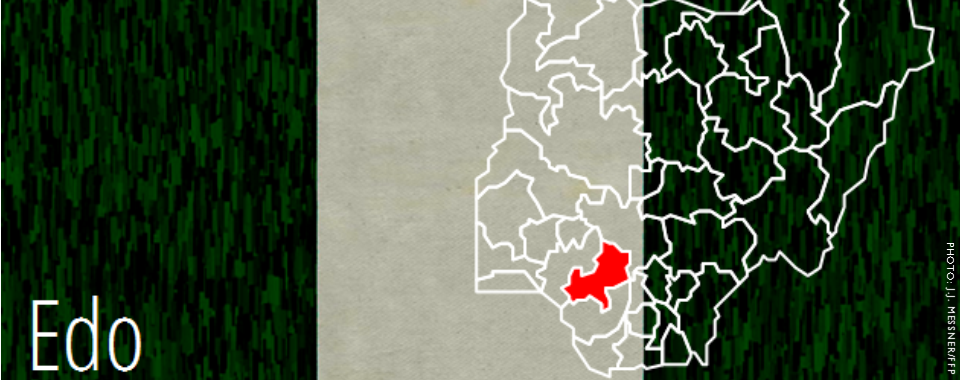BY NATE HAKEN*
Landlocked between Ondo, Kogi and Delta States, Edo is home to about 3.2 million people (2006 census), predominantly of Edo, Bini, Owan, Esan, and Afemai background. Edo’s economy centers around agriculture, including food crops such as yams, cassava, rice or maize and cash crops such as rubber, palm oil, cotton, cocoa and timber. Edo’s capital, Benin City, is the center of Nigeria’s rubber industry. Edo also contains significant deposits of granite, limestone, marble, lignite, crude oil, gold, and kaolin clay.
Edo’s State governor, Adams Aliyu Oshiomhole, took office in November 2008 after winning an appeal in the 2007 elections, which had initially declared his rival, Oserheimen Osunbor, as governor. In July 2012, Oshiomhole was reelected for a second term in a landslide victory. He is one of six governors affiliated with the Action Congress of Nigeria Party (ACN).
Edo was one of the Niger Delta’s more violent states on a per-capita basis from 2012 to mid 2014, with about 113 incidents claiming the lives of over 250 people. Reported incidents of violence and associated fatalities have increased since 2012. Issues in Edo ranged from protests, criminality, abductions and domestic violence to clashes between gangs, cults, political groups and communities. Over half of these incidents were reported in the Oredo Local Government Area (LGA), home to Benin City, although violence was also reported further north, notably in the Esan West, Uhunmwonde, and Etsako Central, East and West LGAs.
This Conflict Bulletin provides a brief snapshot of the trends and patterns of conflict risk factors at the State and LGA levels, drawing on the data available on the P4P Digital Platform for Multi-Stakeholder Engagement (www.p4p-nigerdelta.org). The summaries draw on data collected by FFP’s UNLocK, the Council on Foreign Relations’ NST, WANEP Nigeria, CSS/ETH Zurich, Nigeria Watch, and ACLED integrated on the P4P platform.
*Kadeem Khan also contributed to this report.
